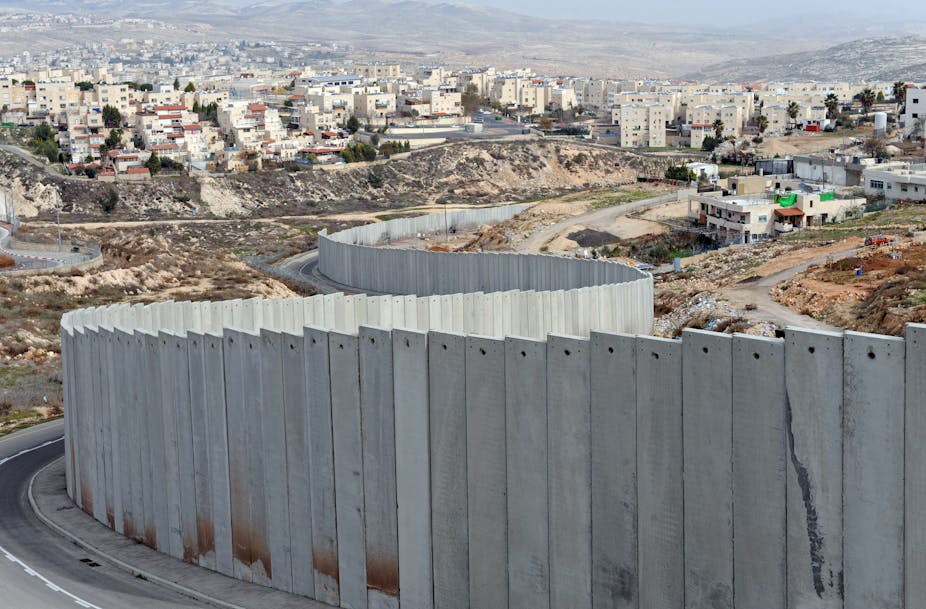United States secretary of state John Kerry is in the Middle East this week. Among other tasks, he is attempting to revive Israeli-Palestinian peace negotiations. Undoubtedly, Israel’s recent approval of 296 new houses in the West Bank settlement of Beit El will be a topic of discussion. Kerry will probably object to this Israeli move because it undermines his peace efforts. Palestinian negotiators will probably object because settlements are at the heart of the conflict.
The ever-expanding colonial enterprise has been at the core of Israel’s existence as a state and at the heart of Zionist nationalist identity since it developed more than a century ago.
Israel has built 150 settlements in the territories it occupied in 1967 and the settlers have additionally erected around 100 so-called “outposts” while the government turns a blind eye. These constitute fundamental violations of Palestinians’ rights. The unwillingness of the international community, including the United States, to stop these violations is the main obstacle to peace.
As the Israeli human rights NGO, B’Tselem has declared: “The very existence of the settlements violates Palestinian human rights, including the right to property, equality, a decent standard of living and freedom of movement.” The report of a recent UN fact-finding mission on Israeli settlements in the Occupied Palestinian Territory provides extensive detail explaining how the settlements and settlers violate Palestinians’ rights, including the internationally agreed-upon right of the Palestinian people to self-determination.

Despite the international community’s long history of condemning Israel’s settlements, they continue to grow. The settler population in the West Bank has been increasing steadily since the occupation began in 1967. In 2009, it grew by 4.9%, by that much again in 2010, and by 4.3% in 2011, several times faster than the population growth inside Israel. The latest statistics show the settlement population expanded by 4.7% in 2012, bringing the total settler population to approximately 560,000 living in Jewish-only settlements that dominate more than 40% of the West Bank and East Jerusalem.
Violations of Geneva Convention
The Israeli government’s settlement of Jewish citizens in the Occupied Palestinian Territory is a violation of the Geneva Convention relative to the Protection of Civilian Persons in Time of War of August 12, 1949 (“the Fourth Geneva Convention”). The International Court of Justice confirmed the applicability of the Fourth Geneva Convention to the Occupied Palestinian Territory in 2004. Palestinian human rights organisations have been reminding the 190 states that are party to the Fourth Geneva Convention that it is their obligation to ensure respect for the convention in all circumstances.
It should come as no surprise that Israel has thumbed its diplomatic nose at the international community. Israel baldly violates international humanitarian and human rights law on a daily basis in hundreds of ways that make the lives of millions of Palestinians living under occupation barely livable.
This should not be surprising because the Israeli government and its settlers suffer few repercussions for these violations. A review of the tens of UN resolutions, special commission reports and special rapporteur visits shows that the international community has little trouble condemning violations, reminding Israel of its obligations and recognising Palestinian rights. What they refuse to do is take action: not just condemn, remind and recognise, but also take action to force change.
US an ‘actor in the tragedy’
Most US administrations since that of Lyndon Johnson have regarded settlements as an obstacle to peace. They are consistently a flashpoint for violent confrontations. The Sharm el-Sheikh Fact-Finding Committee headed by US senator George Mitchell in 2001 called on the government of Israel to “freeze all settlement activity, including the ‘natural growth’ of existing settlements” as a means to rebuild confidence and restart peace negotiations.
Israel has ignored these toothless calls time and again. And yet the US continues to give millions of dollars to Israel every day (for a total so far of more than $233.7 billion). This unceasing generosity is one of the reasons that Israel’s defence minister, Moshe Yaalon, who approved the expansion of the Beit El settlement, is “not afraid of the Americans”.
If the US doesn’t want to make Israel afraid, it could at least resist rewarding that government for its intransigence. If the US could buy Israel’s peace agreement with Egypt in 1979, it could hold back on some of those daily millions as a way to encourage Israel to stop the settlements.
That the US does nothing real to stop the occupation or encourage peace is no shock to most Palestinians. They have, for decades, recognised that the Western powers that claim to act as “impartial peacemakers and judges” are in fact “also actors in the tragedy,” as Albert Hourani told the Anglo-American Committee of Enquiry in 1946. Most have given up on the US as anything besides an enabler of the Israeli colonial project.
Palestinians are rightly cynical about much-vaunted US commitments to international human rights frameworks and they live with the consequences of no consistent international enforcement of humanitarian and human rights law. This is destroying Palestinians’ faith in the international community, the human rights system, and the US.
The real question is not what message the Beit El settlement expansion sends to the White House, or whether it undermines the negotiations. The real question is when the Palestinian negotiators will learn what most of their people already know. The US is not an honest broker for peace; they are what eminent historian Rashid Khalidi has shown them to be: brokers of deceit.

